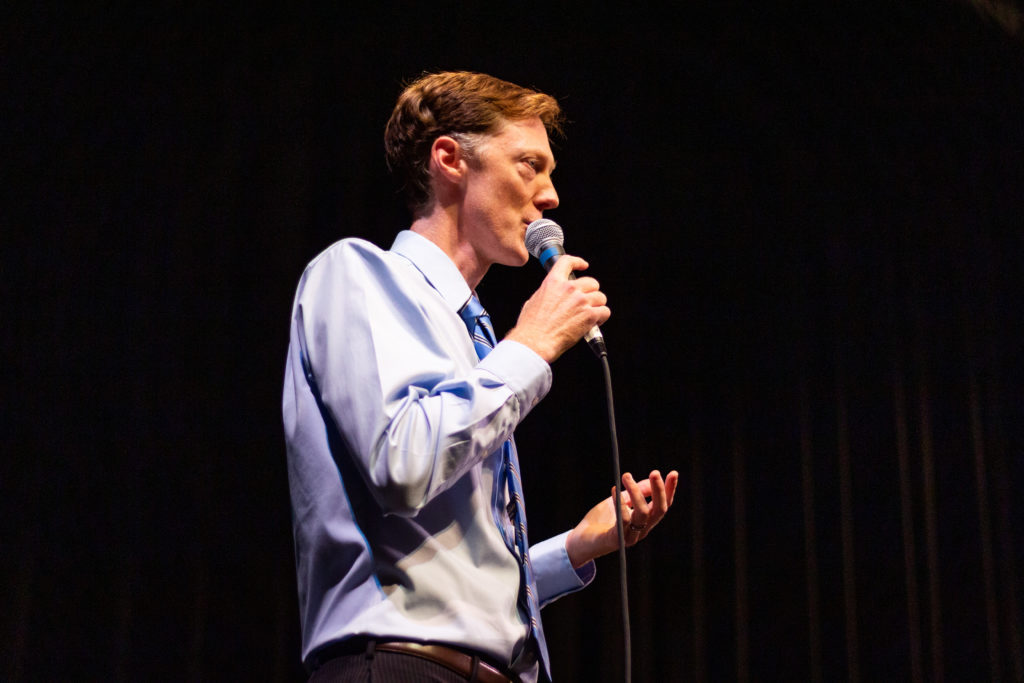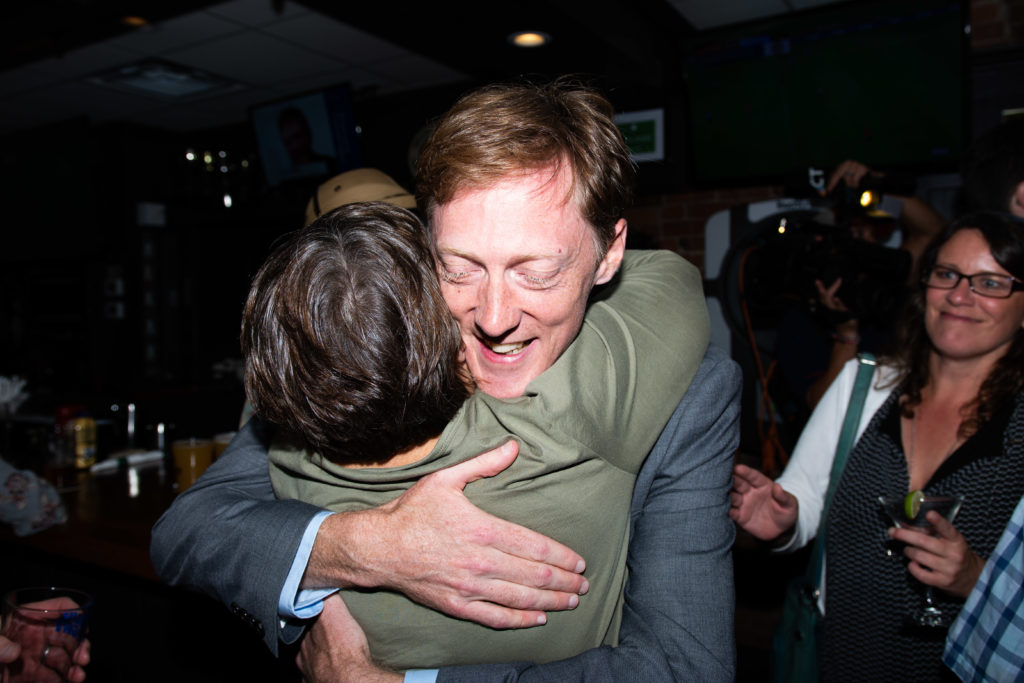
Following a contentious, year-long campaign, Elm City residents overwhelmingly elected Justin Elicker FES ’10 SOM ’10 as New Haven’s 51st mayor, capping Mayor Toni Harp’s tenure at six years.
The election captivated the attention of Elm City residents. Elicker was the first of four candidates to announce his bid in January 2019, and Harp announced that she was seeking reelection shortly thereafter. Following months of public debate, Elicker and Harp emerged as the front-runners ahead of the primary election — which Elicker won in a landslide.
After initially suspending her campaign following a decisive primary loss, Harp jumped back into the race for the general election, continuing her mayoral bid as the candidate for the Working Families Party. She also found support in the People’s Campaign, a grassroots organizing effort and PAC that sprang up when Harp announced her original decision to suspend her campaign. Come November, Elicker defeated Harp by a 2-to-1 margin. In the months between Election Day and his January inauguration, Elicker put together a diverse transition team to help him move from politics to policy.
“I pledge to you tonight that I’m not going to be mayor just for the people in this room — I’m going to be mayor for every single person in this city,” Elicker told a cheering crowd at his victory party. “I’m going to be mayor for the supporters of the Elicker campaign, and I will be mayor for the supporters of the Harp campaign. I will be mayor no matter what you look like, where you came from, how much money you have, what kind of political connections you have — I will represent you and I pledge that here tonight.”
Elicker, a former alder turned local nonprofit leader, positioned himself as a progressive antidote to a bureaucratic and stagnant Harp administration. Throughout the campaign, he charged his opponent with financial mismanagement, corruption in City Hall and weak education policies and personnel. For her part, Harp defended her administration and touted achievements such as crime reduction and improved graduation rates. She also went on the offensive, publishing attack ads against Elicker and ultimately criticizing the Democratic Party, of which she had long been a member.
This was not the first showdown between Elicker and Harp. The candidates first squared off in the 2013 election to replace then-mayor John DeStefano. After Elicker narrowly lost to Harp in the Democratic primary, he ran unaffiliated in the general election. Ultimately, Elicker lost to Harp by approximately 2,000 votes — 10 percent of the vote — and Harp became the 50th mayor of New Haven.

The hallmark of Elicker’s most recent campaign was his concept of two New Havens: a prosperous downtown area that enjoys significant investment, and lower-income areas of the city that, in stark contrast, scarcely benefit from urban development. He campaigned on a platform of bridging this gap by combating gentrification, bolstering job training programs and negotiating Yale’s voluntary contribution to the city, among other policies. Yale’s academic properties are not taxed per the Connecticut constitution, and the University makes a voluntary payment in lieu of taxes.
“The prosperity we see physically manifested through Yale and Downtown hasn’t made it to our neighborhoods,” Elicker said in the press release announcing his candidacy. “I’m running for Mayor because I want my daughters to grow up in a city that provides everyone the education and opportunities they need to be successful in life.”
New Haven is a Democratic stronghold — Democrats have occupied the mayor’s office for six straight decades — meaning that the primary results effectively determine the general election outcome. While Elicker set his sights on a September victory in the primary, he mirrored his 2013 strategy by filing the necessary paperwork to continue his bid unaffiliated if Harp ended up winning the party vote. He told the News at the time that the city’s unaffiliated voters “should have a voice in the election as well.”
Come September, Elicker won the primary in a landslide, besting Harp by 16 points. The Harp campaign seemed all but over.
“Sometimes elections surprise you, and they turn into change elections,” Ed Corey, Harp’s campaign manager, told the News in an interview after the mayor conceded the election. “[Harp] is going to focus on running the city and preparing a transition after the November election.”
After weighing her options for several days, Harp publically suspended her campaign, telling her supporters that campaign finances and political conditions did not support a path to reelection. But, having earned a primary election endorsement from the Working Families Party — a progressive, pro-labor organization — she had the option of remaining on the November ballot. While Harp did not initially pursue this option herself, a grassroots movement emerged under the banner of the People’s Campaign for Toni Harp.
The People’s Campaign sprung up on Facebook almost immediately and eventually filed with the city to become a formal political action committee that served as the center for a grassroots effort to support the mayor, actively soliciting votes on her behalf. Harp cited this show of public support when she reignited her campaign after a five-week suspension. Ahead of the general election, Harp headlined private events and rallied at City Hall. For his part, Elicker continued campaigning, prioritizing voter outreach and expanding efforts to include unaffiliated and Republican voters.
On Nov. 5 — the day of the general election — Elicker emerged victorious by a 40-point margin. In Elicker’s victory speech, he denounced the negative rhetoric that characterized this mayoral contest and expressed his gratitude to his supporters and campaign staff. He went on to thank Harp for her contributions to the city and her pledge to work with him going forward, and promised to serve all Elm City residents as mayor. Elicker urged New Haveners of all stripes to join him throughout both the transition and his eventual tenure to ensure that the Elm City is a place of opportunity for all residents.

Following his resounding electoral victory, Elicker put together a diverse transition team and hosted a series of public events to discuss Elm City policy, many of which drew standing-room-only crowds. The transition team authored a 52-page report meant to guide Elicker through his first 100 days and his two years in office. His term began on Jan. 1.
Elicker earned master’s degrees in business administration and environmental management from Yale’s School of Management and School of Forestry & Environmental Studies, respectively, in 2010. Prior to beginning his campaign in January of 2019, Elicker served as executive director of the New Haven Land Trust.
Julia Bialek | julia.bialek@yale.edu






